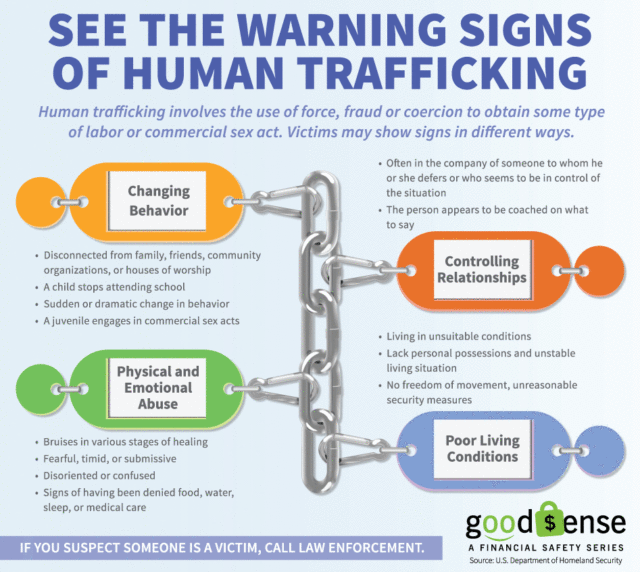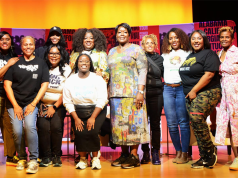By Loren Spiller
www.doingmoretoday
Almost 25 million victims worldwide. A $150 billion industry. Today’s second-fastest growing crime, behind drug trafficking. These figures from the World International Labor Organization describe the silent, troubling industry of human trafficking.
According to Hope for Justice, a nonprofit organization based in Nashville, Tennessee, human trafficking involves the use of force, fraud or coercion to exploit victims for forced labor, sexual exploitation, domestic servitude, criminal activity, forced marriage or other atrocities. About 76 percent of victims are female. On average, a child is bought or sold for sex every two minutes in the U.S., and the average age of these children is 13.
About 40 percent of U.S. human trafficking happens in the Southeast, and a major trafficking thoroughfare is the Interstate 20 corridor. Atlanta, Houston, Miami and other large areas are often the focus of trafficking activity, but no community – no matter how small – is immune.
A single victim of human trafficking may be sold over and over again. Going after traffickers via their wallets is an important way to disrupt their networks.
“Banks play a vital role in fighting and preventing human trafficking,” explained Don White, head of Corporate Security for Regions Bank. “We partner with law enforcement every day, looking for disturbing signs and sharing information to the degree that we can with law enforcement. We are a crucial line of defense; we recognize suspicious activity, and we report it appropriately.”
Finding Hope
In late 2018, Regions partnered with Hope for Justice to train hundreds of bank associates on how to spot victims of, and participants in, human trafficking.
“We are pleased to partner with Hope for Justice and support their anti-trafficking programs and training courses,” said Jim Phillips, Regions’ Compliance Intelligence Officer. “Working with them offers us global expertise but also a local focus here in the U.S., within our footprint. We know this partnership will benefit our associates, customers and the larger fight against human trafficking.”
If you recognize warning signs, like those listed above, you are encouraged to report your concerns to local law enforcement immediately. It can be difficult to speak up. But law enforcement would rather investigate a tip than risk someone being trapped in a cycle of trafficking with no clear way out.




